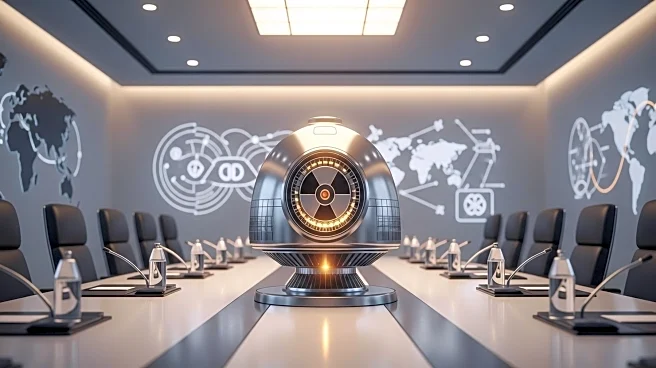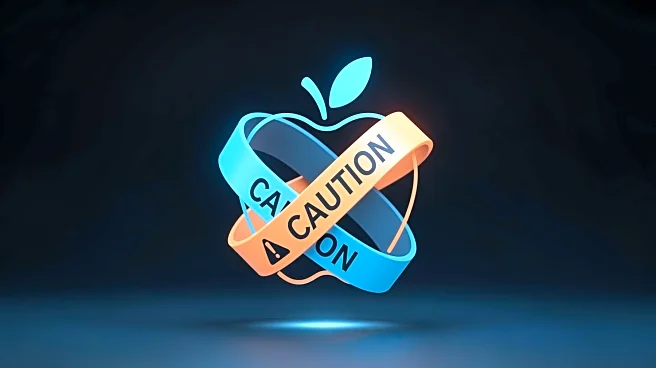What's Happening?
Mohammad Eslami, the head of Iran's Atomic Energy Organization and also Iran's vice president, has traveled to Moscow for discussions, as reported by RIA. The specifics of whom Eslami will meet in Moscow have not been disclosed. This visit comes in the context of ongoing international attention on Iran's nuclear activities, particularly its adherence to the 2015 nuclear deal designed to prevent the development of nuclear weapons. Eslami's participation in the International Atomic Energy Agency (IAEA) General Conference in Vienna further highlights Iran's active engagement in nuclear diplomacy. The visit to Moscow underscores Iran's strategic relations with Russia, a key player in global nuclear politics.
Why It's Important?
The visit of Iran's nuclear chief to Moscow is significant as it reflects Iran's efforts to maintain and possibly strengthen its nuclear program amidst international scrutiny. Western governments have accused Iran of not fully complying with the 2015 nuclear agreement, raising concerns about nuclear proliferation. Iran's engagement with Russia, a major global power, could influence the geopolitical dynamics surrounding nuclear negotiations. This development may impact U.S. foreign policy, particularly in terms of sanctions and diplomatic strategies aimed at curbing Iran's nuclear ambitions. Stakeholders in the U.S. and allied countries are closely monitoring these interactions, as they could affect regional stability and international security frameworks.
What's Next?
The outcome of Eslami's talks in Moscow could lead to further diplomatic engagements or adjustments in Iran's nuclear policy. Potential reactions from the U.S. and European nations may include increased diplomatic pressure or sanctions if Iran's nuclear activities are perceived as non-compliant with international agreements. Additionally, Russia's role in these discussions could influence its relations with Western countries, especially if it is seen as supporting Iran's nuclear ambitions. The international community will likely continue to scrutinize Iran's nuclear activities, with possible implications for future negotiations and agreements.
Beyond the Headlines
Iran's nuclear diplomacy, particularly its engagement with Russia, may have deeper implications for global nuclear governance. The collaboration between Iran and Russia could challenge existing power structures within international nuclear regulatory bodies like the IAEA. This relationship might also affect regional alliances and the balance of power in the Middle East, potentially leading to shifts in military and economic strategies among neighboring countries. The ethical and legal dimensions of nuclear proliferation remain critical, as nations grapple with the challenges of ensuring peaceful nuclear development while preventing weaponization.









